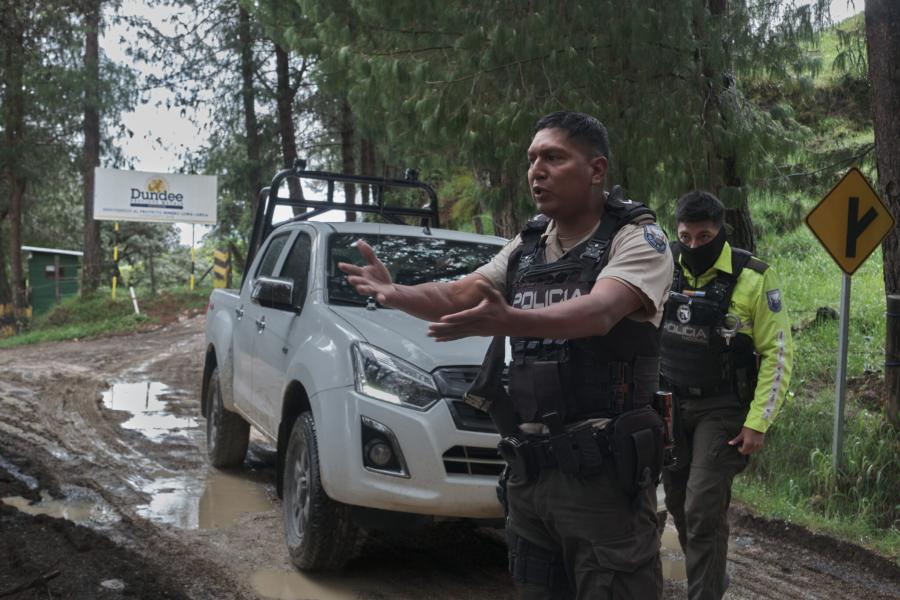The lawsuit involving Texaco and 30,000 Secoya people from the Eastern province in Ecuador has been reinstated by the US Court of Appeals. The case was originally presented in 1993, but later dismissed in 1997 on jurisdictional grounds. The reinstatement of the case in November 1998 renewed hope for the Secoya plaintiffs in the case, as well as environmental and human rights activists around the world. The Secoya are seeking financial compensation to remediate environmental damage, and modernize polluting technologies introduced by Texaco's oil operations in the Amazon in the 1970s and 1980s. Texaco denies any environmental damage and is seeking to have the case transferred to Ecuador.
Texaco began their oil drilling operations in Ecuador in 1972. Ecuador is dependent on oil exports for more than half its national revenues: The country is the sixth largest oil producer and fourth largest oil exporter in Latin America. At the moment, Texaco has no current oil exploration or production operations of its own in Ecuador. However, the extraction techniques they introduced in the 1970s are still being practiced today by Petroecuador, the national oil company.
The Secoya have collected evidence from independent environmental organizations supporting their allegations that Texaco's oil drilling technologies have turned thousands of square miles of Amazon into a toxic waste dump. The tribal communities are arguing that Texaco used waste disposal techniques in Ecuador that have been deemed unsafe in other parts of the world, as part of a strategy to maximize their profit margin. These drilling techniques have contaminated the land, rivers, and fish population, and have caused health problems for the Secoya.
The 1798 Alien Tort Claims Act, originally intended to allow litigants to gain redress for piracy, is now being used by the Secoya legal representatives to have the case heard in the United States. If this occurs the damages awarded could amount to $1 billion dollars. The Secoya claim the Ecuador legal system is ill-equipped to hear the case because the national economy is so dependent on oil as foreign investment. They also claim that because Texaco's headquarters is in New York, and decisions made concerning the oil project were made there, the case should be heard in the US. Texaco is arguing that the case should be heard in Ecuador, because that is where the operations were conducted, and that is where the plaintiffs are located.
Leaders of indigenous rights and environmental movements are closely watching the unfolding of this landmark case as it is part of the ever increasing pressure on multinational oil companies to be accountable for their foreign operations, and is a step towards remediating the adverse effects on the environment and humans caused by the oil industry in Latin America -- effects especially felt by indigenous communities.
Article copyright Cultural Survival, Inc.



